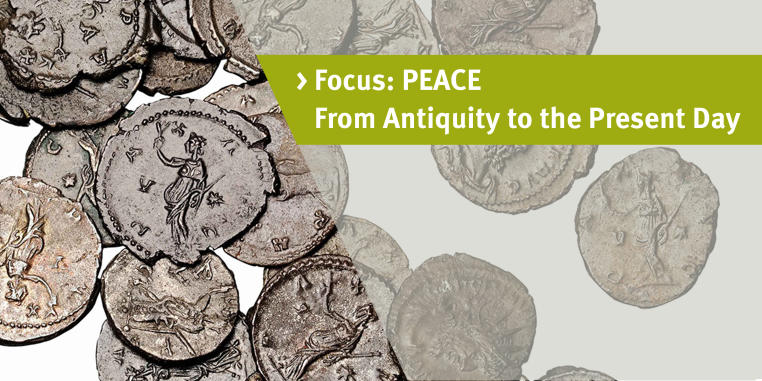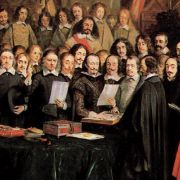
Peace. From Antiquity to the Present Day
Series by the Cluster of Excellence on international conference and major exhibition
At the public conference “PEACE. Theories, Images and Strategies from Antiquity to the Present Day” of the Cluster of Excellence, which will be held from 22 to 25 May 2018 in Münster, internationally renowned researchers will address the question in 21 lectures of why people throughout the ages wanted peace, but never succeeded in securing it in the long term. On the basis of many historical examples of European history, they address strategies, behavioural patterns and processes with which people from antiquity to the present day have tried to establish and maintain peace. The researchers focus on how many of the images, rituals and strategies have remained valid over time. At the same time, they show changes typical of their time and their causes. All lectures will be held in the auditorium of LWL-Museum für Kunst und Kultur at Domplatz 10 in Münster.
Over the next few weeks, the Cluster of Excellence will present key topics of the conference on the Internet and in the media. The conference is part of the exhibition “Frieden. Von der Antike bis heute” (Peace. From Antiquity to the Present Day), which will present the topics in a variety of exhibits at five locations in the city of the Peace of Westphalia from 28 April to 2 September 2018. The idea and basic concept of the exhibition project are the result of the many years of research at the Cluster of Excellence on the topic of peace. (asc/vvm)







